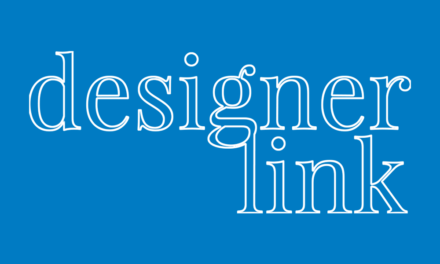Meeting Evolving Consumer Expectations through Strategic Supply Chain Strategies
Healthcare supply chains are adapting to the growing demand for sustainable, locally sourced food. They are playing a key role in meeting this trend. Meagan Pollak-Harrison emphasizes the importance of selecting strategic vendor partners.
The decisions businesses must make are crucial, whether they are large suppliers or regional vendors. Intelligent supply chain management (SCM) by third party experts is the best solution to evolving challenges.
Many see healthcare food procurement as a tough challenge. Pollak-Harrison suggests contracting local vendors for bakery, dairy, meat, or seafood items. These vendors help source local products. Through negotiation, companies can create contracts directly or with Group Purchasing Organizations (GPOs).
Broadline distribution partners play a key role in sustainable practices. These centers offer a mix of local and conventional products. This helps businesses make informed choices and adopt sustainable practices while keeping familiar routines.
Focusing on eco-friendly disposables helps organizations slowly integrate sustainable practices. This focus builds understanding of various medical products, supplies, and their costs. Healthcare facilities can gain long-term benefits from sustainable inventory management.
Leveraging Technology and Data Analytics to Navigate Inflation Impacts
Pressures related to inflation have characterized health care in the modern day. Increasing cost of goods and services has prompted businesses to pursue cutting costs by other means. As such, technological integration becomes a vital tool for healthcare supply chain management.
Pollak-Harrison strongly advocates for the integration of technology and data analytics to optimize procurement and supply chain management. Without these tools, healthcare systems are missing out on cost-saving opportunities. In the face of the healthcare supply chain’s rapidly changing landscape, such opportunities are crucial.
Fortunately, innovations in healthcare technology are arriving rapidly to meet the changing needs of customers. Direct Supply DSSI is showing its progress and commitment to this wave of new technology.
The DSSI Order Guide Management technology has evolved into the patented OGM® 3 tool. This technology further advances the management of order guides, centralizing the process and enabling the identification of cost-saving opportunities. Businesses with a focus on cost can improve efficiency and increase cash flow.
With automated purchasing, processes are sped up and less labor is required to accomplish repetitive tasks. This not only helps to reduce costs but also improves efficiency and ultimately enhances patient care. The advancements in healthcare technology mean that there are opportunities to rethink the way supply chains operate.
Advancements in technology provide benefits beyond cost-saving opportunities. Advanced medical devices of all sizes, shapes and uses can be tracked and maintained by cloud-based networks. This “Internet of Things” should be used by providers to understand and connect their operations. The more businesses know about their products, the easier it will be for them to refine the processes that source and transport them.
Artificial intelligence (AI) further enhances these capabilities, automating the discovery of potential cost savings. This technology-driven approach has empowered providers to outperform inflation in healthcare.
A real-world success story has been the use of OGM.ai™ technology. Direct Supply DSSI providers achieved 6% lower food PPD. Inflation was reduced from the 2022 Food Away from Home index of 8.3%. Healthcare cost is down thanks to Direct Supply DSSI technological advancement.
The DSSI implementation of automated features is one example of how technology is driving positive change in the healthcare industry. As healthcare systems continue to evolve, it is essential for organizations to embrace these technological innovations. Healthcare supply chain strategies must include data-driven decision making. It is crucial to staying competitive and providing the best possible care for their patients.
Learn more about how to improve the healthcare procurement process with data driven analysis.

Mitigating Challenges: Overcoming Labor Shortages and Supply Chain Disruptions
Challenges like labor shortages and supply chain disruptions have become recurring themes for health systems in recent years. Pollak-Harrison identifies the issue of product substitutions as a notable concern. However, solutions like the DSSI OGM 3 technology provide an effective means of navigating these challenges.
Centralized order guides focus on similar products and connect with alternate product selection features. Customers see suitable backup options through real-time inventory checks. This helps avoid problems when a product or service is not available.
This real-time approach enhances visibility and control over delivered products. Additionally, it facilitates on-the-spot decision-making based on price, quality, nutritional value, and more.
Building Resilience Through Collaboration and Industry Expertise
The value of collaboration and partnership is evident when addressing unforeseen events like the COVID-19 Pandemic. According to Pollak-Harrison, cultivating robust partnerships within the healthcare supply chain is essential for establishing emergency preparedness plans.
Corporate partnerships between healthcare providers and procurement/supply chain support companies like Direct Supply can greatly enhance flexibility in changing economic landscapes. These partnerships enable healthcare providers to leverage the expertise and resources of supply chain specialists.
Equipped providers can adapt swiftly to economic shifts. Through such collaborations, healthcare providers can access a wider range of products and services. This access is crucial in times of fluctuating supply and demand.
Additionally, the expertise of procurement specialists aids in cost management. Direct Supply DSSI can help enforce advantageous terms with vendors and identify cost-saving opportunities. This financial agility allows healthcare providers to navigate economic uncertainties without compromising service quality.
Collaboration also fosters innovation. By working together, healthcare providers and procurement companies can develop new strategies and solutions tailored to specific needs. This joint effort promotes resilience and agility, enabling healthcare facilities to adapt quickly to new economic conditions.
Corporate partnerships with companies like Direct Supply DSSI equip healthcare providers with the tools, resources and expertise needed. Our partnered organizations remain flexible and responsive in a changing economy. These collaborations enhance operational efficiency, cost-effectiveness, and overall quality of care. Partnerships ensure that healthcare providers can continue to meet patient needs, regardless of economic fluctuations.
Strong relationships ensure swift communication and problem-solving when faced with unforeseen challenges. During the pandemic, partnerships allowed businesses like Direct Supply DSSI and Sysco® to optimize order acknowledgement processes. These businesses adapt rapidly to changing dynamics and ensure clear communication with the end users.
Future-Proofing Supply Chain Strategies for the Healthcare Industry
In the post-pandemic world, effective supply chains will manage changes to the flow of goods. In implementing flexible and responsive global supply chains, companies can avoid time consuming disruptions.
Strategies can change quickly when it comes to surprising events like natural disasters. The competitive advantage will go to supply chain professionals who have formed strong relationships with their suppliers. A flexible supply chain network is one with frequent communication, clear production processes and strong quality control.
As we look ahead, emerging trends in supply chain strategies for the healthcare industry come into focus. Pollak-Harrison suggests that staying ahead of the curve involves embracing evolving technologies and approaches.
The smartest, most successful companies will be the ones who make informed decisions. Further integration of AI and data analytics is essential. By fostering an environment of innovation and flexibility, healthcare providers can navigate emerging challenges and provide the best possible experiences.

The Bottom Line
There are many different factors to consider when attempting to make your business more receptive to changing expectations. If you have operations in the United States you might feel that a rebounding economy is a positive sign. However, your international supply chain may still be affected by outside pressures.
Procurement services that you organize internally could be affected by a merger, or labor dispute. This is why forming partnerships with support organizations like DSSI can be a massive benefit to your organizations.
Strategic vendor partnerships, whether with large suppliers or regional vendors, are essential. Local vendors can help source bakery, dairy, meat, or seafood items, making healthcare food procurement more manageable.
Focusing on eco-friendly disposables helps organizations gradually integrate sustainable practices, building an understanding of medical products, supplies, and their costs. This blend allows businesses to make informed choices while adopting sustainable practices. This approach can lead to long-term benefits for healthcare facilities through better inventory management.
Technology and data analytics are vital tools for navigating the impacts of inflation on healthcare. Automated purchasing speeds up processes, reduces labor, and cuts costs.
Artificial intelligence (AI) further enhances these capabilities by automating cost-saving discoveries. As noted, Direct Supply DSSI providers achieved significant cost reductions using OGM.ai technology.
Labor shortages and supply chain disruptions are recurring challenges in healthcare. Technologies like DSSI OGM 3 help manage these issues by providing real-time inventory checks and suitable backup options. This enhances visibility and control over delivered products, allowing on-the-spot decision-making based on various factors.
Collaboration and partnership are key to building resilience in the healthcare supply chain. Partnerships with companies like Direct Supply enhance flexibility and access to a wider range of products and services. These collaborations help manage costs and foster innovation, enabling healthcare providers to adapt to changing economic conditions. Strong relationships ensure swift communication and problem-solving, especially during unforeseen challenges like the COVID-19 pandemic.
Future supply chain strategies in healthcare must be flexible and responsive to avoid disruptions. Frequent communication, clear production processes, and strong quality control are essential. Embracing evolving technologies and approaches, such as AI and data analytics, will help healthcare providers navigate emerging challenges. When providers can focus on their own expertise, they provide the best possible care.
Interested in learning more? Read about the benefits to supply chain automation in healthcare.
Let’s Talk Supply Chain!
Schedule your 30-minute consultation to learn how DSSI can help you implement your healthcare supply chain strategies.




